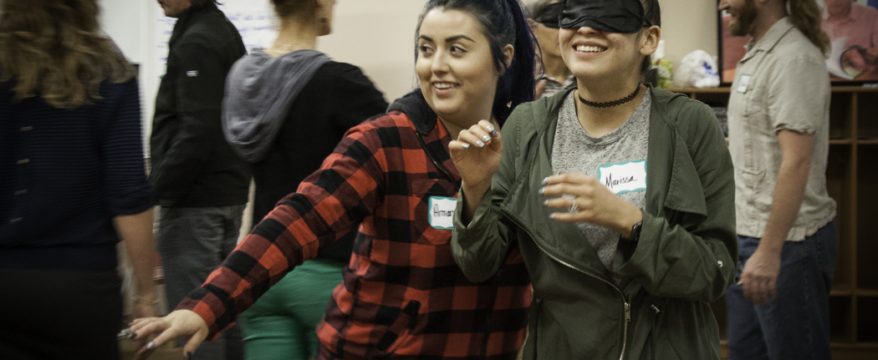An Emerging Community of Mentors
The Academy for the Love of Learning is committed to exploring ways to reconnect people to their natural love of learning. The inquiry is profound, and has compelling ramifications for how we teach, how we listen and, in a much broader sense, how we react and respond in any given situation throughout the course of our lives.
Within the context of Inspire Santa Fe, the city-wide mentorship program the Academy holds in partnership with the non-profit Siete del Norte, this inquiry into learning has led us to explore how best to both support and “develop” community members who have volunteered to mentor young people in specific fields, from blacksmithing to computer coding, from psychology to visual arts. How do we, as an organization dedicated to learning as a practice, move beyond standardized, didactic, obligatory trainings for these mentors? How do we go deeper?
Here is what we know now that we are in the third year of the Inspire program. We know that the majority of mentors want to make a big difference in a small amount of time. We know that mentors want to be connected to other mentors. We also know that mentors want brass tacks help, whether in the form of technical advisement or hands-on assistance. In response, we have created a three-hour Learning As Practice (LeAP) workshop just for mentors and tutors from Inspire Santa Fe and other organizations throughout the city.
This is not a Powerpoint presentation or the typical “sit and get” lecture. Rather, it is both experiential and reflective, hands-on and theoretical.
At the heart of this workshop is the Academy’s signature Impulse Exercise, created by founder and president Aaron Stern over thirty years ago. This somatic experience (from the Greek soma, of or relating to the body), distinct from any cerebral undertaking, is designed to increase awareness of our true and natural impulses as learners, and our belief systems as teachers. In pairs, with one partner blindfolded, the participants are asked to literally and figuratively explore their long-held beliefs about teaching and learning – in this case, as mentors and as protégés, as leaders and as followers.
The Impulse Exercise often elicits deep emotional responses and surprising revelations. Perhaps most importantly, it leads us toward answering our own questions – in this case, questions and doubts about how to be a good, effective mentor or tutor. Do I push the young person, or wait for him or her to show initiative? Do I make our sessions fun or make them demanding?
To date, we have conducted three LeAP workshops for mentors and tutors, with over sixty participants in two locations. The participants have primarily been Inspire mentors and but also included classroom tutors, leaders of programs for teen mothers, academic coaches, and more. Together, we have learned more than any Powerpoint could ever elicit. The collective wisdom of these committed volunteers has revealed that connection takes time and relationship-building is a process. Mentors have discovered that they can trust protégés to tell them what they want and need, that there are times to push and times to slow down, that there is also a “middle path” between pushing and slowing, a path akin to “dancing.” Mentors and tutors have reminded themselves to be playful. They’ve learned that by nature we are both trusting and devious, that mentorship is unpredictable, that mentors can be the bellows to the spark of learning.
We are excited to continue this vital and dynamic exploration with two more Mentor/Tutor LeAP workshops in January of 2017. Please join us, and please help to spread the word to people you know who are working with young people in any type of learning relationship.


